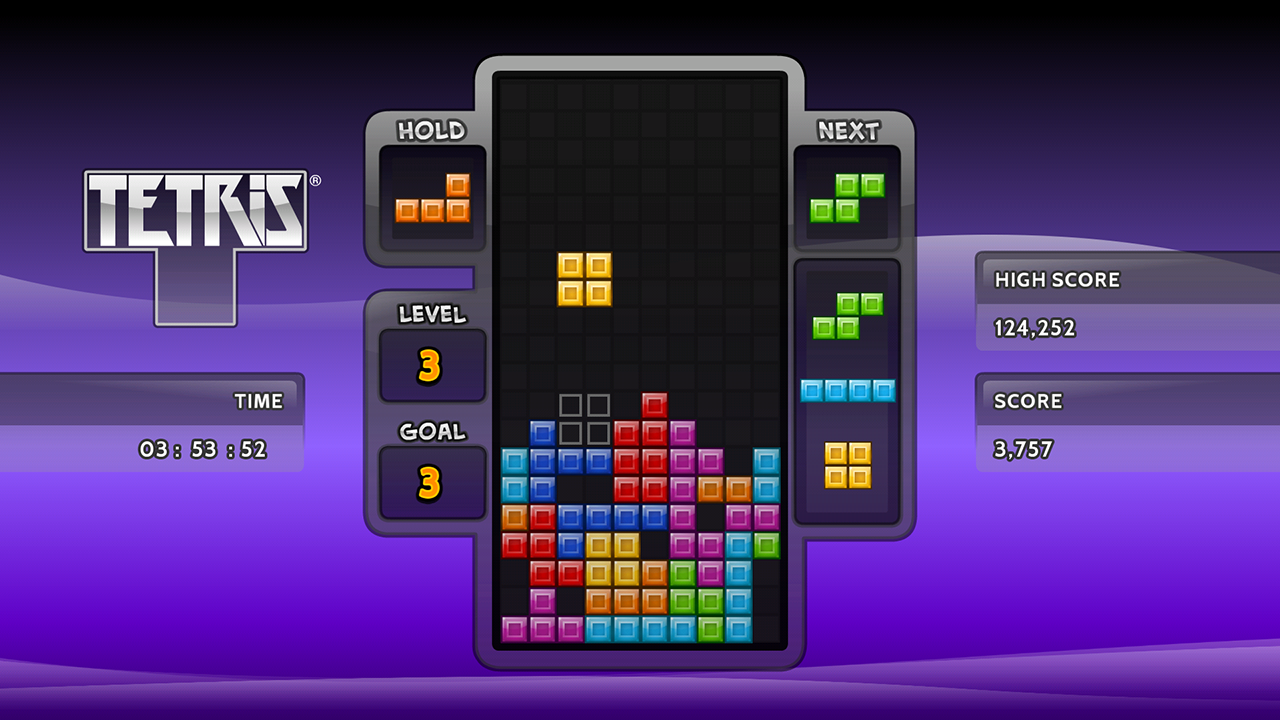Tetris online takes center stage as it revolutionizes the way we engage with this classic puzzle game. From its humble beginnings in the 1980s to its current online iterations, Tetris has evolved significantly, incorporating new features and functionalities. Players can now enjoy Tetris across various platforms, whether on a computer, gaming console, or mobile device, providing endless opportunities for gamers to connect and compete with others around the world.
As we delve deeper into the mechanics of Tetris online, we will explore the fundamental gameplay concepts that make the game enjoyable. Additionally, we’ll uncover advanced strategies that can help players refine their skills and dominate in competitive settings. With various modes available, each offering unique challenges, there’s something for everyone in the Tetris online landscape.
Overview of Tetris Online

Tetris has a rich legacy that spans decades, transforming from a simple puzzle game to a global phenomenon, especially in its online iterations. The ability to connect players from around the world has revolutionized the way Tetris is experienced, introducing new challenges and formats that have captivated audiences.
The journey of Tetris online began in the late 1990s when the internet started to gain popularity. Early adaptations allowed players to compete against each other in real-time, enhancing the competitive aspect of the game. As technology advanced, so did the complexity of online Tetris, leading to features such as multiplayer modes, different game variants, and cross-platform play. This evolution has solidified Tetris’s status as both a nostalgic and contemporary gaming experience.
Key Features of Online Tetris
Online Tetris distinguishes itself from traditional versions through several innovative features that enhance gameplay and player interaction. These include:
- Real-time Multiplayer: Players can compete against others from around the globe, adding a layer of excitement and competition that was not possible in single-player formats.
- Leaderboards and Rankings: Online Tetris often includes global leaderboards, allowing players to track their progress and compare their skills with others.
- Unique Game Modes: Variants like Tetris 99 and Tetris Effect have introduced Battle Royale mechanics and immersive soundscapes, respectively, providing fresh takes on the classic format.
- Community Features: Many online Tetris platforms offer chat functions, friend lists, and tournaments, helping to foster a sense of community among players.
Platforms for Online Tetris
Tetris is now available on a variety of platforms, catering to a wide audience. The flexibility of access is one of the significant advantages of online Tetris. The primary platforms include:
- PC and Mac: Many online versions can be played directly in web browsers or through downloadable clients, providing a straightforward experience for computer users.
- Consoles: Tetris is available on popular gaming consoles such as Nintendo Switch, PlayStation, and Xbox, allowing for multiplayer sessions on home systems.
- Mobile Devices: Tetris has been adapted for iOS and Android, offering quick, on-the-go gaming experiences that are perfect for short bursts of play.
- Game Streaming Services: Platforms like Xbox Cloud Gaming enable players to access Tetris without needing high-end hardware, making it more accessible than ever.
Gameplay Mechanics and Strategies

Tetris online is a beloved classic that combines strategic thinking with quick reflexes. Players manipulate falling Tetriminos, aiming to create complete lines on the playing field. The game’s simplicity belies its depth, offering layers of complexity for both beginners and seasoned competitors. Understanding the core mechanics and employing effective strategies is essential for mastering online Tetris.
The basic gameplay mechanics revolve around maneuvering different shaped blocks, known as Tetriminos, which fall from the top of the screen. Players can rotate and move these pieces left or right as they descend. The primary objective is to clear lines by filling them completely with blocks, which grants points. When lines are completed, they disappear, allowing the blocks above to fall down, creating opportunities for further line clears. The game continues until the blocks stack up to the top of the screen, ending the game.
Basic Gameplay Mechanics
Understanding the basic mechanics is crucial for achieving success in Tetris online. Here are the key components:
- Block Types: Tetriminos consist of seven distinct shapes (I, O, T, S, Z, J, and L), each with unique rotation patterns and characteristics.
- Movement Controls: Players can typically move Tetriminos left and right, rotate them, and drop them faster with designated keyboard keys or controller buttons.
- Line Clearing: Clearing multiple lines at once, known as a Tetris (four lines), results in bonus points and enhances game speed.
Advanced Strategies for Online Tetris
To excel in online Tetris competitions, players must adopt advanced strategies that go beyond basic gameplay. Here are some proven tactics:
- Stacking Techniques: Building a well-structured stack with minimal gaps allows for more efficient line clearing. Using techniques like “T-Spins” can help clear lines while also scoring extra points.
- Speed Management: Players should practice increasing their speed, which is crucial in competitive environments. This involves mastering techniques like soft and hard drops to control block placement effectively.
- Preview Utilization: Keeping an eye on the next Tetrimino can help players plan ahead, allowing for strategic placements and better line clearance opportunities.
Modes of Play in Online Tetris, Tetris online
Online Tetris offers various modes, each with unique challenges that cater to different player preferences. Understanding these modes can enhance the gaming experience:
- Classic Mode: This mode replicates the original Tetris experience, focusing on line clearing at a steadily increasing difficulty.
- Battle Royale Mode: In this mode, players compete against numerous others, sending garbage lines to opponents by clearing lines themselves, making the competition intense and strategic.
- Speedrun Mode: Players aim to clear a set number of lines as quickly as possible. This mode emphasizes speed and precision, rewarding quick thinking and execution.
Community and Competitive Scene

The online Tetris community is vibrant and dynamic, characterized by passionate players and dedicated fans who celebrate this iconic puzzle game. From casual gamers to serious competitors, the community thrives on shared experiences, strategies, and a collective love for Tetris. Engaging discussions, fan art, and collaborations create a rich tapestry of interactions that enhance the overall enjoyment of the game.
The competitive scene of Tetris has gained significant traction in recent years, with numerous tournaments and events showcasing elite players from around the globe. These competitions not only highlight individual skill but also foster a sense of camaraderie among participants and spectators alike.
Major Online Tetris Tournaments and Events
Tetris tournaments have evolved into high-stakes events that attract top-tier talent and sizable audiences. Notable tournaments include:
- Tetris World Championship (TWC): An annual event that brings together the best players from various regions to compete for the title of world champion. The TWC has a rich history and is regarded as the pinnacle of competitive Tetris.
- Tetris 99 Grand Prix: A unique event within the popular battle royale format of Tetris 99, where players compete to achieve the highest scores and earn exclusive in-game rewards.
- Online Tetris League (OTL): A series of seasonal leagues that allow players of all skill levels to compete in a structured format, promoting regular play and community engagement.
The excitement and anticipation surrounding these events often generate a substantial amount of online buzz, fostering a competitive yet friendly atmosphere.
Role of Social Media in Promoting Online Tetris Games
Social media platforms play a crucial role in amplifying the presence of Tetris online. They serve as venues for players to share achievements, strategies, and creative content related to the game. Various platforms facilitate the growth of the community by enabling interaction and collaboration among players.
Highlights of social media’s impact include:
- Streaming on platforms like Twitch and YouTube: Players stream their gameplay, allowing others to learn from their techniques and engage with them in real-time through chat functionalities.
- Community-driven events: Social media helps organize grassroots tournaments and events, making it easier for players to connect and participate in competitive play.
- Content creation and sharing: Creators produce tutorials, strategy guides, and entertaining videos, which enriches the community’s knowledge base and enhances the enjoyment of the game.
Through these platforms, players can easily share their love for Tetris, creating a sense of belonging and fostering new friendships within this classic gaming community.
“The Tetris community thrives on collaboration, creativity, and competition, pushing the boundaries of what can be achieved in this timeless game.”


